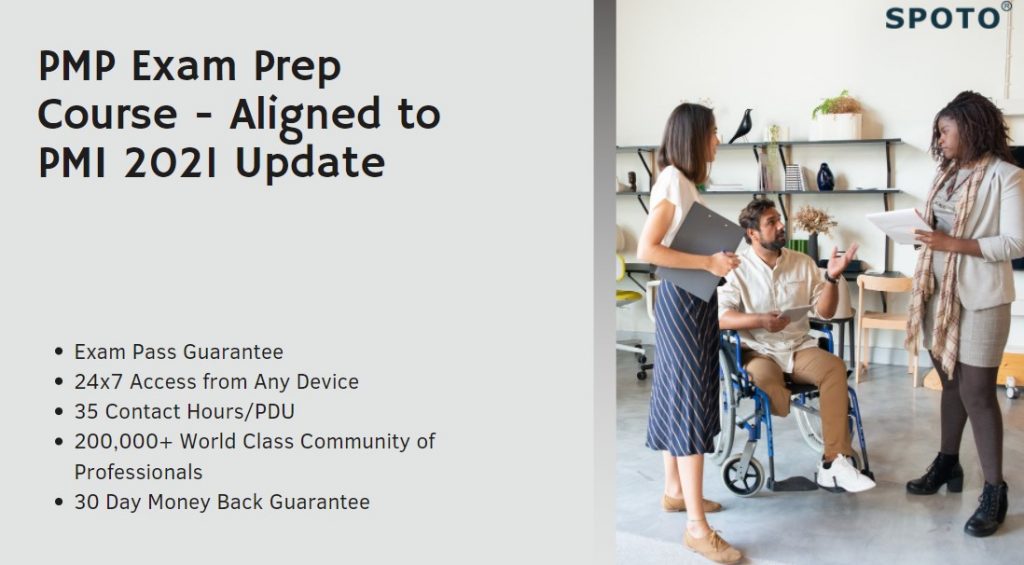A strong foundation of leadership is required for effective project management. With so many moving parts and often a large number of team members with diverse professional backgrounds, strong leadership is critical to moving the workflow forward.
Adding project leaders to your project management team can mean the difference between a highly productive and happy workplace.
Though project leaders are frequently confused with project managers, they play an important role within an organization. Project leaders, like project management officers and project coordinators, collaborate with project managers to ensure goals are met.
Let’s take a closer look at the responsibilities, required skills, and salary expectations for project leaders in 2021 and beyond.
Overview of the Project Leader
It’s common to mix up project leaders and project managers. Managers’ and leaders’ roles and responsibilities may overlap to some extent depending on organizational structure.
Regardless, there is a significant distinction between the two roles. While project managers are concerned with the big picture — project deadlines, schedule management, and progress reports — project leaders are on the ground motivating the project’s team.
A project leader is an expert in their field who can effectively make plans that support project goals and lead their team to perform efficiently. A great project manager is sensitive to the emotions of their team members. They work hard to keep their team motivated, engaged, and focused on the task at hand.
To exceed project goals, a successful project manager will inspire their team, encourage creativity, and foster a collaborative work environment.
Roles and Responsibilities of the Project Manager
The responsibilities of a project leader will differ depending on the company, industry, and even the project management role structure. Here are some examples of common responsibilities:
Collaborate with department heads, managers, and other stakeholders to develop team goals and assign tasks to appropriate team members.
Create team schedules and assist with successful team member onboarding and training.
Create and communicate a clear set of expectations and goals for team members to follow. Provide emotional support to project team members and make them feel valued.
Maintain frequent communication to encourage, amend tasks, and provide updates on goal progress. Implement incentives to keep the team motivated and focused on their daily tasks. project objectives
Provide frequent feedback on employee performance, address flaws or inefficiencies, and offer assistance in closing skill gaps.
Encourage team members to collaborate.
To get the most out of the team, create an environment that encourages creativity and innovation.
Resolve team conflicts quickly and effectively.
As needed, write project reports.
Reward team members for their ongoing efforts and celebrate successes.
Project Management Capabilities
A project leader possesses a distinct set of skills that enable them to successfully lead their team. Hard skills will be industry-specific, such as project management platforms, industry knowledge, or relevant licensing.

However, there are a number of soft skills that can help a project leader with their responsibilities, including the following:
Management of a Group
The majority of a project leader’s responsibilities are dependent on their ability to effectively manage their team. To achieve project objectives, leaders must form a team of individuals with the necessary skill sets and encourage collaboration. Successful team management necessitates collaboration, goal setting, and regular performance evaluations.
Communication
A project leader’s ability to communicate effectively is essential. Leaders should promote and facilitate communication in order to effectively convey ideas or direct a team of employees.
Listening
Project managers should concentrate on actively listening to their teams. Understand team members’ concerns and feedback, and work to resolve any issues that arise in order to avoid disruptions in productivity.
Dispute Resolution
Conflict is often unavoidable when a diverse group of people work in close quarters. However, nothing stifles productivity more than team conflict. Project managers must recognize emerging conflicts and work to de-escalate any tension or disputes among team members as soon as possible. For all team members to thrive, the work environment should be harmonious.
Leadership on a Team
One major indicator that leadership is the most important skill required for success in the role is the position title of project leader. To ensure that all team members are treated equally, project leaders must work without bias. Leadership necessitates a blend of conflict resolution, team management, and communication skills. Set goals that are in line with project requirements and equip the team with the tools needed to achieve them.
Organization
Strong organizational skills are essential for setting and meeting deadlines, delegating tasks, and creating effective team schedules.
Thinking Critically
Finding creative solutions, anticipating potential productivity roadblocks, and overcoming obstacles are common challenges for project leaders. A good project leader possesses strong critical thinking skills that enable them to succeed in any situation.
Time Administration
Although project leaders are primarily concerned with leading their teams, they must also ensure that deadlines are met. To ensure that all tasks are completed efficiently, these professionals must understand the team’s capabilities and skill levels, as well as have strong time management skills.
Salary of the Project Manager
A project leader’s annual salary ranges from $49,000 to $120,000, with an average annual salary of $81,756.
Aside from the salary, additional compensation may include annual bonuses and profit-sharing options. Medical, dental, and vision benefits are examples of common health benefits.
Now is the time to start training to become a project manager.
Simplilearn’s Post Graduate Program in Project Management, in collaboration with the University of Massachusetts Amherst, will help you become a digital-age project leader. You’ll learn the frameworks, tools, and skills needed to drive transformative projects in this course, which is aligned with the Project Management Professional (PMP®) certification.
The course focuses on quality and risk management, delivering the best results, understanding strategy, and putting best practices into action in any project.





